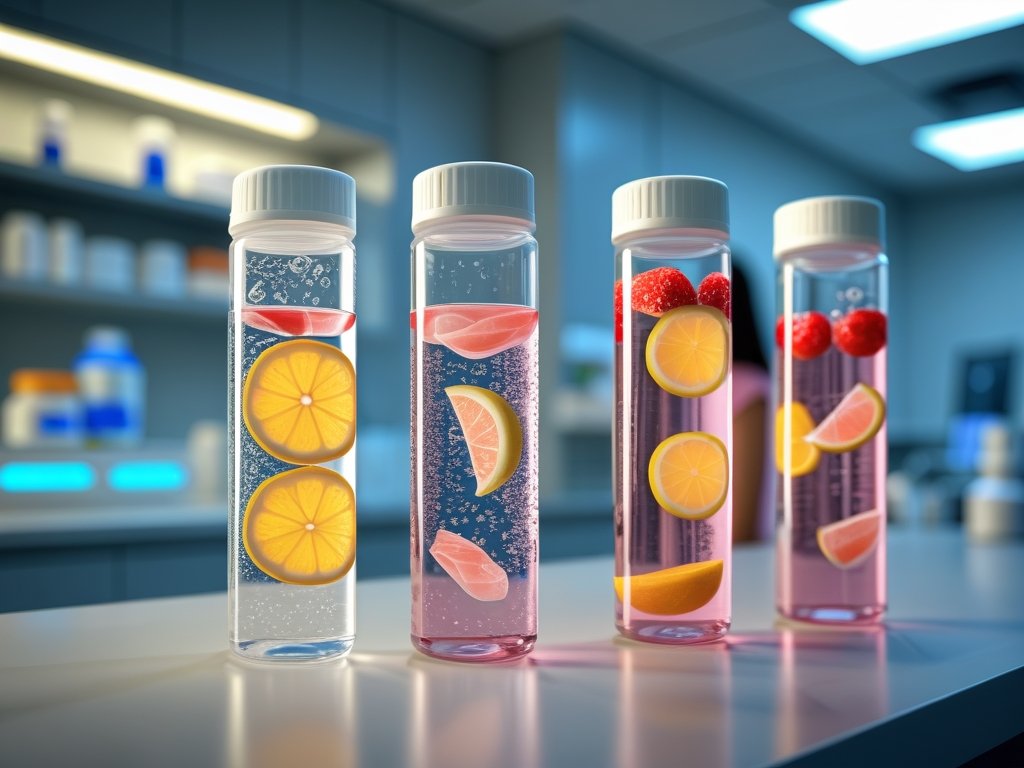We’ve all been there – a night where sleep felt elusive, perhaps punctuated by one too many cocktails, or simply a stressful event leaving us tossing and turning. Waking up feeling depleted isn’t just about tiredness; it profoundly impacts our hydration levels. Often overlooked in the morning aftermath of a rough night is the significant fluid loss that occurs through various mechanisms even without obvious sweating. Alcohol disrupts hormone regulation impacting vasopressin (a key hormone for water retention) and increases urine production, leading to dehydration. Poor sleep also affects hormonal balance, subtly influencing how our bodies regulate fluids. Even stress itself can contribute to increased cortisol levels, which impacts hydration.
The consequences of this hidden dehydration extend far beyond thirst. It manifests as fatigue, headaches, impaired cognitive function (making focus difficult), and even mood swings. The body prioritizes essential functions when dehydrated, often at the expense of mental clarity and physical energy. Simply put, a rough night dramatically alters our internal environment, and rehydration isn’t merely about drinking water – it’s about strategically resetting your hydration habits to support recovery and restore well-being. This article will explore practical strategies for doing just that, moving beyond basic fluid intake to incorporate electrolytes, mindful sipping, and supportive lifestyle choices.
Understanding the Dehydration Cycle After a Rough Night
Dehydration isn’t always immediately apparent. It’s easy to mistake lingering fatigue or a headache for simply feeling tired after insufficient sleep. However, these symptoms are often exacerbated – or even caused by – dehydration. A rough night disrupts our normal physiological processes, creating a vicious cycle where lack of sleep leads to increased stress hormones and fluid loss, which then further impairs sleep quality and cognitive function. Alcohol consumption compounds this issue dramatically. It’s a diuretic, meaning it promotes water loss through urination, and interferes with the body’s ability to absorb fluids effectively. Even if you drink water while consuming alcohol, its effects on hydration are significant.
The key is recognizing that rehydration isn’t just about replacing lost fluids; it’s about restoring the electrolyte balance disrupted by these factors. Electrolytes – sodium, potassium, magnesium, and chloride – are crucial for nerve function, muscle contraction, and maintaining fluid balance within cells. When dehydrated, these electrolytes become imbalanced, contributing to symptoms like muscle cramps, weakness, and headaches. Plain water is excellent, but it doesn’t always address this electrolyte component effectively. Therefore, a thoughtful rehydration strategy focuses on both volume and mineral replenishment. You can even look at strategies for balancing electrolytes to support your recovery.
Furthermore, the impact isn’t just immediate. Chronic dehydration, even mild, can have long-term health implications. Regularly experiencing dehydrated mornings after nights with poor sleep or excessive alcohol consumption puts undue stress on organs like the kidneys and can contribute to decreased energy levels over time. Prioritizing hydration is therefore not simply a recovery tactic; it’s an investment in overall health. Consider incorporating hydration tracking habits to stay mindful of your intake.
Electrolyte Replenishment Strategies
Electrolytes are often the missing piece in basic rehydration efforts. While water is essential, electrolytes help your body use that water effectively and restore vital functions. There are several ways to replenish these lost minerals:
- Electrolyte Drinks: Commercially available electrolyte drinks can be helpful but choose wisely. Many contain high levels of sugar or artificial ingredients. Look for options with minimal added sugars and a balanced blend of electrolytes.
- Natural Sources: Food provides excellent sources of electrolytes. Bananas are rich in potassium, leafy green vegetables provide magnesium, and salty snacks (in moderation!) contribute sodium. Coconut water is also a naturally occurring source of electrolytes.
- DIY Electrolyte Solution: You can create your own electrolyte drink using simple ingredients: water, a pinch of sea salt, a squeeze of lemon or lime juice, and a touch of honey or maple syrup for taste. This allows you to control the ingredients and avoid unnecessary additives.
It’s important to remember that individual needs vary based on activity level, climate, and overall health. Someone who has been physically active after a rough night will require more electrolytes than someone who remained relatively sedentary. Listen to your body and adjust electrolyte intake accordingly. Pay attention to symptoms like muscle cramps or fatigue, which can indicate an electrolyte imbalance.
The Art of Mindful Sipping
Chugging large amounts of water all at once isn’t the most effective way to rehydrate. It overwhelms the kidneys and often leads to fluids being excreted quickly without being fully absorbed. Instead, focus on mindful sipping throughout the morning and beyond. This means drinking small amounts of fluid consistently over time.
- Start with a glass of water as soon as you wake up: Even before coffee or breakfast, rehydrate your system immediately.
- Carry a reusable water bottle: Having water readily available encourages consistent intake.
- Set reminders: If you struggle to remember to drink, set alarms on your phone throughout the day as gentle prompts.
- Incorporate hydrating foods: Fruits and vegetables with high water content (watermelon, cucumbers, oranges) contribute to overall hydration.
The goal is not just quantity but also absorption. Sipping allows your body to gradually absorb fluids and electrolytes, maximizing their benefits. Avoid drinking large volumes of water during meals, as this can dilute digestive enzymes. Instead, focus on sipping between meals and throughout activities. Think of rehydration as a sustained process rather than a quick fix. To further support healthy habits, explore mindful hydration practices.
Beyond Water: Supportive Lifestyle Choices
Rehydration is just one piece of the puzzle when recovering from a rough night. Supporting your body’s natural recovery processes through other lifestyle choices can significantly enhance well-being. Prioritizing sleep hygiene, even on days following poor sleep, is crucial. This includes establishing a regular sleep schedule, creating a relaxing bedtime routine, and optimizing your sleep environment (dark, quiet, cool).
- Gentle Movement: Avoid strenuous exercise immediately after a rough night. Instead, opt for gentle movement like walking or yoga to improve circulation and boost energy levels.
- Nutritious Food: Focus on nourishing foods that provide sustained energy. Avoid sugary snacks and processed foods, which can lead to energy crashes. Prioritize protein, healthy fats, and complex carbohydrates.
- Stress Management: Incorporate stress-reducing activities like meditation, deep breathing exercises, or spending time in nature. Stress exacerbates dehydration and hinders recovery.
These lifestyle choices work synergistically with rehydration efforts to restore balance and promote overall well-being. Remember that self-care isn’t a luxury; it’s an essential component of health. By prioritizing hydration and supporting your body’s natural recovery mechanisms, you can minimize the impact of rough nights and wake up feeling refreshed and revitalized. A good starting point could be to review strategies for regaining flow after a stressful week, which can help with overall well-being.
For more comprehensive understanding of urinary health and recovery, consider exploring resources on UTI prevention and boosting kidney health after a stone episode.





















